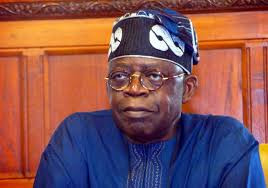
Bola Tinubu, the National leader of the All Progressives Congress (APC), has urged the Federal Government to facilitate tax reliefs for financial institutions in the country to lower their interest rates, and for banks to offer tax reliefs and low interest rates to mitigate the economic impact of the COVID-19 pandemic in Nigeria.
In his recent statement, the former Governor of Lagos State highlighted that reduced rates will boost domestic investment and production, leading to job creation. He emphasized that while lower rates may initially impact inflation and the exchange rate negatively, the economic disruptions caused by the coronavirus would help alleviate these temporary drawbacks.
Below is the full statement by Asiwaju Bola Ahmed Tinubu.
THE CASE AGAINST HIGH INTEREST RATES IN TIME OF CONTAGION
THE TIME IS NOW – CORRECT THE INTEREST RATE
The economic fallout from the coronavirus may present the best, most pressing case for revising the CBN’s high interest rate policy. The undue rates penalise domestic investment and consumer borrowing. This reduces both aggregate domestic supply and, to a lesser degree, aggregate domestic demand. The chronic gap between domestic supply and demand has been filled by bloated levels of imports and encouraged an overvalued exchange rate that the high interests have helped produce. In normal times, the high interest rates also attract significant foreign financial speculation, the ever-ominous hot money. While in the short-term, the foreign speculation boosts financial inflows. Over time, as compound interest payments become due on these foreign investments, the nation will lose an ever-increasing amount of money to satisfy foreign debt obligations. In the short run, high rates seem to attract foreign capital and spur the economy while giving it discipline against inflation. In the longer-term, all of this is untrue. High rates give us the worst of both worlds. They stifle domestic investment and incomes while pushing up inflation and exposing an ever-increasing share of our financial system to foreign manipulation and dependence. Put another way, if you take a single picture early in the process, the high interest rate policy looks good at that moment in time. However, if you view the entire movie, you will see an ending that is both painful and unnecessary.
The Central Bank of Nigeria has demonstrated its financial agility by establishing a growing number of special financing programs for various industries and sectors of the economy. While these programs look good at first glance, they also expose important contradictions in the CBN’s position. The special schemes are an implicit admission that normal rates stifle investment borrowing and thus suppress the economy. The extraordinary schemes would not be required if the general interest rate was at a proper level. By establishing the special programs, the CBN attempts the impossible. On one hand it defends the general rate as prudent. On the other, it proliferates special exceptions in order to spur investment borrowing that the general rate has heretofore stifled.
This complex CBN rear-guard action does not serve the greater purpose. It merely prolongs the inevitable: We must retreat from high interest rates if we want investment borrowing to attain levels that actually increase private-sector growth and job creation.
This point bears repetition. If the financial sector functioned properly, servicing the needs of the economy in general, there would be no need to constantly resort to specialised sectoral plans (one for this industry, another for that industry and so on) for concessionary lending below regularly available rates of interest. Each such scheme is evidence that the overall financial system is fragmented in a manner that artificially reduces investment and the positive consequences increased investment has on growth, production and employment. The schemes are akin to a homeowner who, confronted with severe structural damage, commissions a fresh coat of paint to obscure the obvious structural flaws. Just as the homeowner should focus on fixing the core problem to prevent the house from crumbling, the Bank should do the one great thing it can do to free the economy from an unpayable burden. It should reduce interest rates.
The modern global economy is built on credit. Prosperous nations have built success based on the sustained ability to use credit to generate high levels of domestic investment as well as allow for significant consumer financing. Unlike two centuries ago, most business investment is not derived from the self-generated funds of the businessman or investor. Investment comes mainly from bank loans. However, the current rate of interest in Nigeria prohibits most normal business investment. Thus, the productive sector stagnates as innovation and creative endeavour are discouraged. Employment and aggregate demand are dragged down. The economy becomes a slave to a negative, impoverishing dynamic.
[…]
[Detailed analysis continues]
[…]
CONCLUSION
High interest rates are a fundamental drag on national economic growth. Only our unreliable power supply may loom as a bigger impediment to national prosperity.
Lower rates will spur domestic investment and production. This creates both jobs and wealth. High rates serve only to suppress these vital factors. Lower rates will have some negative short-term impact on inflation and the exchange rate. However, in a twist of irony, the economic dislocations caused by the coronavirus serve to mitigate those temporary negative consequences. If there is a time to reduce interest rates, that time is now.
SIGNED
Asiwaju Bola Tinubu,
APC National Leader,
May 3, 2020.
